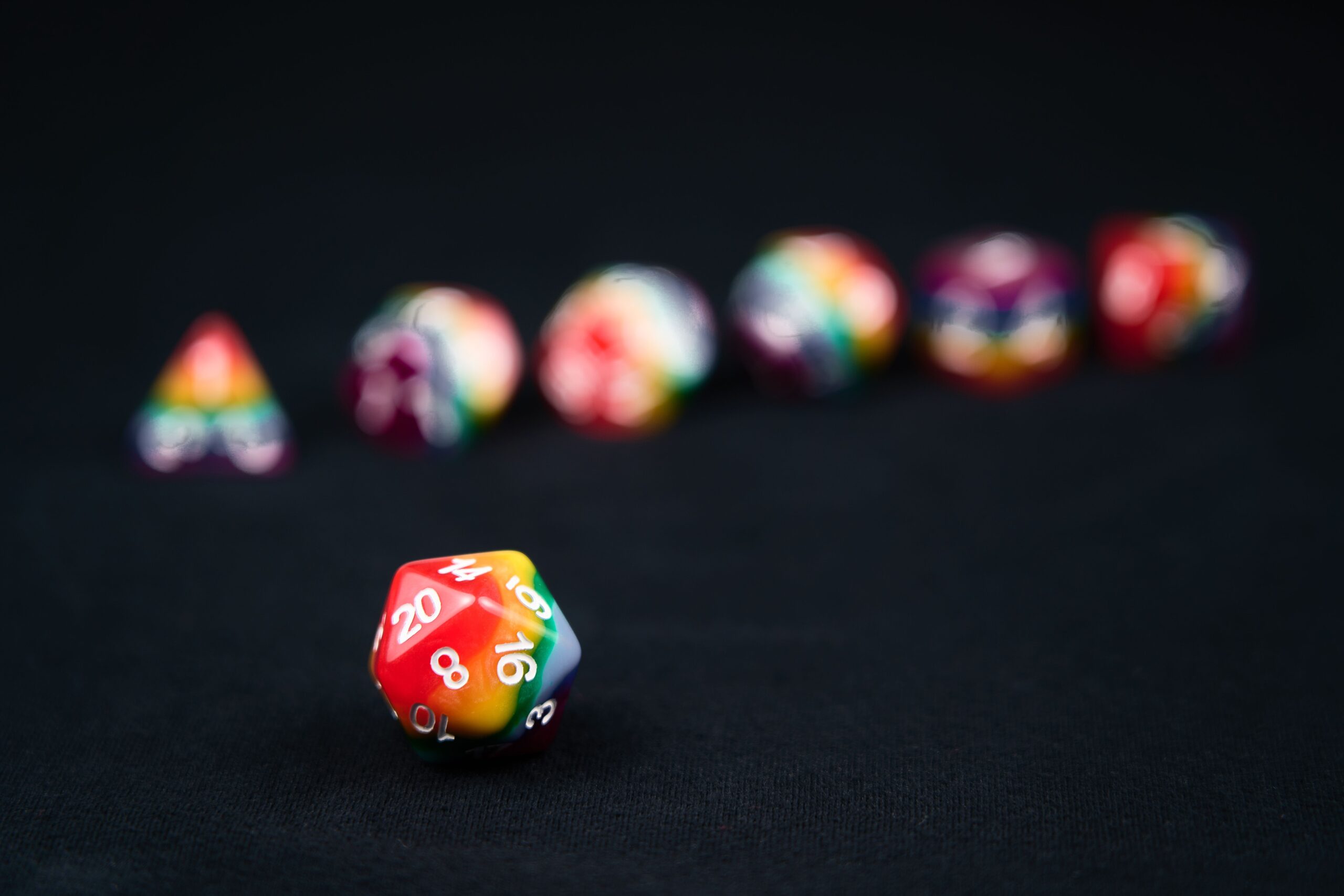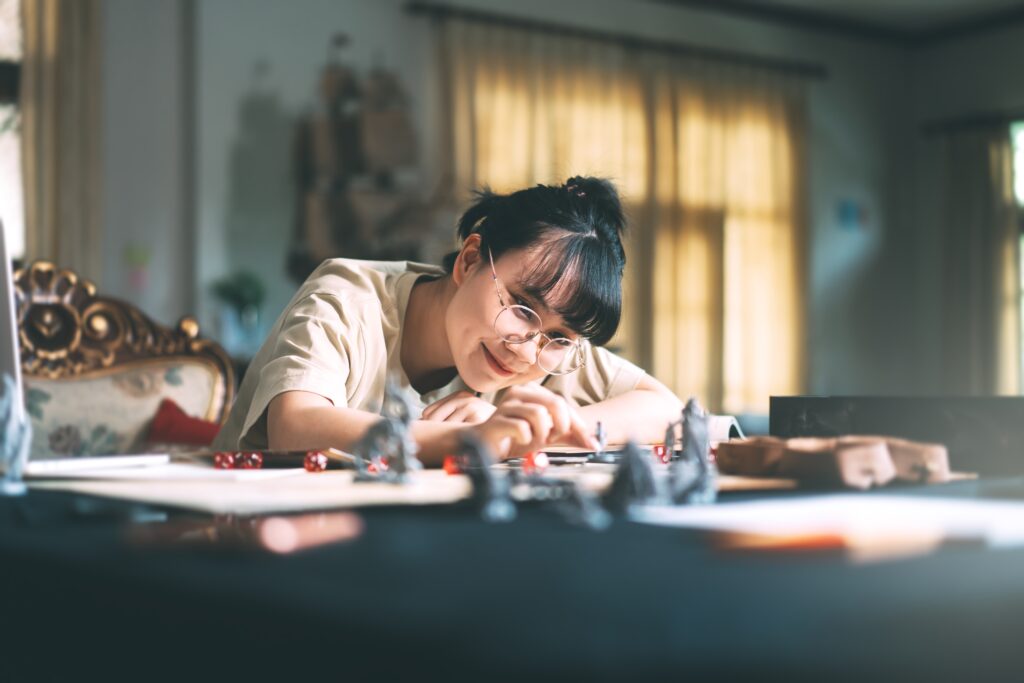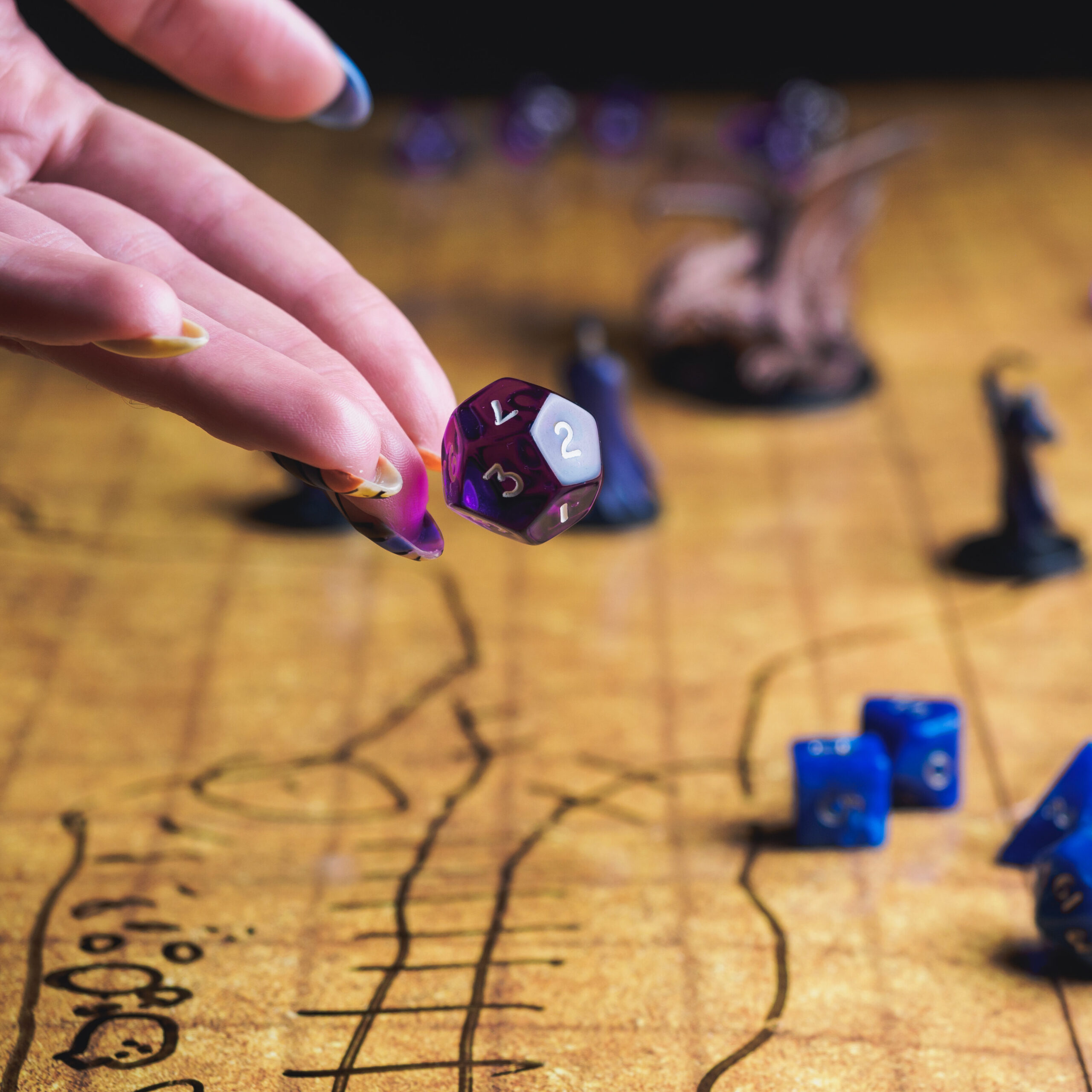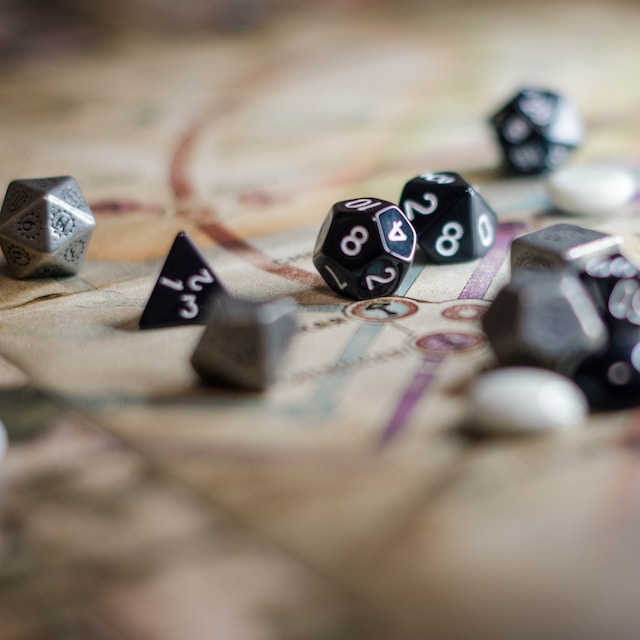SIGN UP FOR A
FREE BARBARIAN
STL FILE
Join our community and get your FREE ready-to-print STL FILE of the Barbarian, a Fantastic Art Studios Miniature signed by renowned sculptor Alex Oliver.

Tabletop role-playing games have captivated players for decades with their ability to transport us into imaginative worlds and embark on epic adventures. Beyond their entertainment value, RPGs offer a remarkable platform to explore and celebrate diverse narratives.
From representations of race, ethnicity, gender and beyond, to queer narratives, Role-Playing Games empower us to shape our own stories and create inclusive settings that reflect the world’s beautiful diversity.
Together, let’s celebrate the transformative power of RPGs as a medium for diverse storytelling and their incredible potential to illuminate identities that have been historically underrepresented.
Tabletop RPGs provide a powerful platform for players to create their own stories, granting them the freedom to explore diverse narratives that are often overlooked or underrepresented. Unlike traditional forms of storytelling, RPGs empower participants to shape their own unique tales, enabling them to delve into a wide range of themes and experiences. By taking on the role of storyteller and character creator, players can bring to life narratives that resonate with their own diverse backgrounds and perspectives, fostering a sense of personal connection and authenticity in their storytelling endeavors.
Through the creation of characters that reflect their own experiences, players can bring a new level of personal investment and depth to their RPG stories. This aspect of tabletop RPGs allows individuals to explore and express aspects of their identity that may not be commonly portrayed in mainstream media. Whether it’s representing marginalized communities, tackling social issues, or shedding light on unique cultural perspectives, players have the agency to shape their characters’ journeys and actively contribute to a more diverse and inclusive storytelling landscape. By offering a platform where players can authentically reflect their own experiences and explore narratives beyond the mainstream, tabletop RPGs become a catalyst for empowering individuals to tell their own stories and bring greater representation to the world of storytelling.


Creating a safe space for storytelling in tabletop RPGs is crucial for ensuring that all participants feel comfortable, respected, and able to freely express themselves. Here are some key steps to foster a safe environment:
Through tabletop RPGs, players can explore and break down stereotypes around race, gender and sexuality. They can create characters that defy traditional gender roles and explore different types of relationships and family structures. This is because the game focuses on the characters and their stories, rather than their physical attributes. Players are encouraged to think beyond the traditional roles and explore different perspectives. Tabletop RPGs offer a unique opportunity to practice empathy and look at things from new angles, helping players to become more aware and understanding of different points of view.
When it comes to race, players can create characters from diverse racial backgrounds, offering a counter-narrative to stereotypes and highlighting the richness and diversity of human experiences. By exploring the nuances of different cultures and ethnicities within the game world, players can challenge racial stereotypes, broaden their own perspectives, and promote a more inclusive portrayal of diverse identities.


In terms of gender, players can create characters that defy traditional gender roles and expectations. By designing characters who embody a range of gender identities and expressions, players challenge the notion that certain traits or behaviors are exclusive to a specific gender. This opens up discussions and narratives that question and dismantle gender stereotypes, promoting a more inclusive understanding of gender diversity and encouraging players to embrace and respect a wide spectrum of identities.
Additionally, players can explore and challenge stereotypes around sexuality within the game. They can create characters with different sexual orientations and relationships, normalizing and celebrating diverse expressions of love and attraction. By portraying healthy and authentic relationships that defy heteronormative assumptions, players can break down stereotypes and promote inclusivity, fostering a greater acceptance and understanding of the LGBTQ+ community.
To effectively explore and break down stereotypes, players should approach the game with an open mind and a willingness to engage in reflective and respectful discussions. They can question and challenge stereotypes within the game world, and encourage their fellow players to do the same. By actively seeking out diverse perspectives, educating themselves on different experiences, and creating narratives that go beyond clichés and biases, players contribute to a more inclusive and representative gaming experience.
In conclusion, tabletop RPGs offer a transformative and inclusive medium for storytelling. They provide individuals with the agency to shape their own stories and explore diverse themes and identities that may not be commonly represented in mainstream media. By creating safe spaces, challenging stereotypes, and fostering inclusivity, players can contribute to a gaming landscape that celebrates the beauty and diversity of the world we live in. As we continue to recognize the potential of tabletop RPGs as a tool for diverse storytelling, we have the opportunity to create narratives that inspire, educate, and empower individuals from all walks of life.